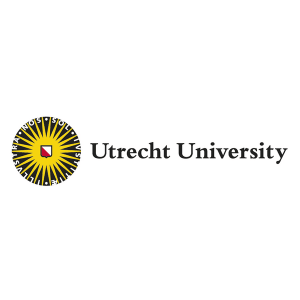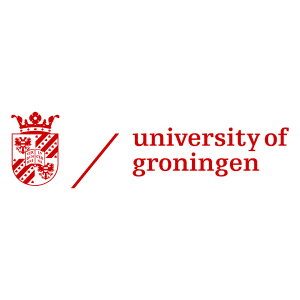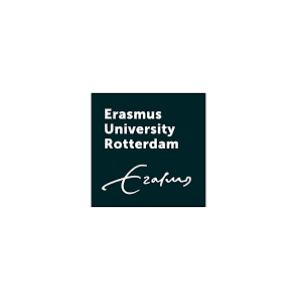Explore By
 Exams
Exams
 Countries
Countries
 Expenses
Expenses
 Universities
Universities
One of the most popular destinations in Europe for international students is The Netherlands, informally known as Holland. With some of the best universities in the world, a cutting-edge approach to education, and a friendly atmosphere, the country is a great choice for those looking to study abroad. The terms "Holland" and "Netherlands" are frequently used interchangeably. Technically speaking, The Netherlands is the name of the entire nation, which has twelve provinces. The Holland region, however, has two provinces North and South Holland.
The Netherlands was the first country in Europe to implement the Bachelor/Master system and provide degree programs in English. Around 70 higher education institutions in the country provide a wide variety of Bachelor's and Master's degrees.
Therefore, the country has a sizable group of international students from more than 112 different countries. Approximately 16 percent of all students in the Netherlands are international, which makes the country hosting one of the highest percentages of international students in all of Europe;
Universities in The Netherlands are frequently categorized as either "research universities," giving more academic programs focused on research, or "universities of applied sciences," offering more study programs focused on practice.
You must first get in touch with the international office of the university you are applying to, to find out about their specific requirements. Next, make sure that your previous degree (obtained in your country of origin) is accepted in the Netherlands.
Following are the other requirements you will need to fulfill
If you are not an EU/EEA or Swiss citizen, you need a residence permit.
English proficiency requirements: GMAT or GRE, TOEFL (minimum 550 paper-based, 213 computer-based), and IELTS (minimum average of 6).
A 7–7,5 minimum average (foreign diploma).
To be granted admission to the college to which you have applied. If institutions feel you are not fully qualified, they may reject your application or require you to undergo specific entrance tests.
A solid command of Dutch if you plan to enroll in a Dutch study programme. In order to demonstrate that you have a sufficient command of the language, the majority of colleges may also offer you courses in Dutch as a second language.
Proof of English proficiency (TOEFL/IELTS)
GMAT/GRE for postgraduate programs
Letters of recommendation
Statement of purpose
Academic transcripts
Copy of a valid passport
The Netherlands has started to draw a lot of attention for its highly ranked, prestigious medical schools, engineering schools, law schools, and business schools. The country also has some of the oldest universities in the world.
Numerous organizations and universities in the Netherlands are well-known internationally for their scientific research and discovery. Some of the well-known and highly-ranked universities in the country include Leiden University, Utrecht University, Wageningen University, and Research, Erasmus University Rotterdam, and the Eindhoven University of Technology.

Utrecht University
Utrecht, Utrech
Know More

University of Groningen
Groningen, North Brabant
Know More

Erasmus University Rotterdam
Rotterdam, South Holland
Know More
Higher education institutions in the Netherlands provide a wide variety of course options. The following are a few of the top courses in the Netherlands for foreign students namely MS in Engineering, MS in Architecture, Fine arts, Law(LLB), and Business administration
How to finance your study in the Netherlands
Level of Education | Average Cost Per Year (in EUR) |
Undergraduate Degree | 6,000 - 15,000 EUR/year |
Graduate Degree | 8,000 - 20,000 EUR/year |
Doctoral Degree | 6,000 - 20,000 EUR/year |
Living Expenses
Thanks to its highly regarded academic institutions, extensive offerings of English-taught courses, and welcoming multicultural atmosphere, the Land of Tulips draws a sizable number of international students each year. Your monthly costs will consist mainly of lodging, food, transportation, books, clothing, and recreational activities.
Expenses | Average Cost |
Rent | 300 – 600 EUR/month |
Food and Groceries | 150 - 170 EUR/month |
Transportation | 35 - 70 EUR/month |
Entertainment | 50 - 60 EUR/month |
Recommended Blogs
Numerous government-funded, nonprofit organization-funded, and university-funded scholarships are available to international students. Scholarships offered in the Netherlands include -
Government-funded Scholarships for international students
Holland Scholarship Programme
Erasmus Mundus Scholarships
Orange Knowledge Programme
The Global Study Awards
Other Scholarships for international students
Scholarships are offered to students with exemplary academics by the university to encourage them for future studies. The following are some of the universities that provide such scholarships -
University of Maastricht
Radboud University
Utrecht University
University of Groningen
VU University Amsterdam
University of Twente
Recommended Blogs
On-campus accommodation
Student housing is more reasonably priced, and some universities even provide on-campus housing. If you get in touch with your school after being accepted, they might be able to help you find a room.
The majority of Dutch colleges lack campuses. Instead, they provide lodging for students through different housing organizations. To avoid disappointment, be sure to book a room as soon as you can. Depending on where you plan to live and the kind of room you plan to rent, prices may change.
Off-campus Accommodation
In the Netherlands, most students live in student houses, which are privately owned homes built to accommodate three to six people. Even while sharing a home with strangers and adhering to the rules may be challenging at first, most people eventually adapt. Renting a single apartment or sharing a bigger apartment is another choice, although the costs are higher.
Studio apartment rent : 500 to 1,000 euros per month.
For two people sharing a rental flat : 400-700 EUR per month
For student housing : 350 to 600 euros per month
Netherlands Student Visa - How to Study in the Netherlands
Process
Initiate your visa application after consulting with your chosen university.
Once you've finished the visa initiation process, go to the embassy or consulate to submit your visa application.
Submit your application after paying the visa fees.
Attend your interview for a visa.
It could take up to a month for your visa application to be accepted.
Obtain your MVV.
Documentation
Visa application form completed and two pictures
Birth certificate and a valid passport
A transcript of grades
Official letter from the Netherlands-based university
A study plan (Explain why you are drawn to that area of study in particular. How and why does it relate to what you've already learned?
Financial justification for the entire study duration (about 870 EUR per month)
Health and travel insurance
Application fee for visa (172 EUR)
Authentic documents are all duplicated with photos.
Test for tuberculosis (required for citizens from some countries)
Your decision to study abroad in the Netherlands will benefit your professional career. Numerous organizations and universities give overseas students exposure, networking opportunities, and placements. The country also allows international students to stay in the country for a year post graduation to encourage the hiring of highly qualified international workers.
The allowance or authorization given to overseas students after graduation to look for jobs is the orientation year. Once you land a job, you are free to remain in the Netherlands for as long as you need to.
Part-time Work Opportunity
The two primary employment opportunities for students in the Netherlands are internships and part-time jobs.
Internships : Short-term internships are available and are a requirement for most courses. For an internship, students are paid a stipend that is tax-free and does not require a work visa. Depending on the nature of the job, the organization, and other considerations, this remuneration ranges from €500 to €800 per month. Another concept similar to internships is an industrial thesis. Students are paid similarly to interns under this arrangement, but an industrial thesis typically lasts longer depending on the ECTS.
Part- time Jobs : In the Netherlands, part-time employment for students is limited to a total of 16 hours a week. Students technically work two hours a week in addition to their studies. Students are permitted to work full time and receive a full-time salary throughout the summer months of June, July, and August. It is vital to keep in mind that students can only work part-time during the academic year or full-time during the summer.
The majority of off-campus employment in the Netherlands is in the service industry, including waitressing, delivery, servers, cooks, housekeeping, tutoring at home, administrative support, substitute teaching, IT positions at tech firms or startups, jobs in entertainment and recreation, and handling or influencing social media.
The hourly wage for a part-time job ranges from €11 to €14, and the company is in charge of obtaining the student employee's work visa.
Full-time Work Opportunity/Post-study Work Opportunity
Multinational companies including Shell, KPMG, Philips, Heineken, and many more have their headquarters in the Netherlands. In addition to this, it houses the regional headquarters of over 3000 MNCs.
The maximum number of hours that can be worked in the Netherlands each week is 45, with flexible possibilities such working four days a week. Tax perks for highly skilled migrants include a 30% tax exemption, free health care, reimbursements, etc.
The country prefers job profiles mainly in the fields of Accountants and Business Analysts, Administrative assistants, bank managers, Architect and Construction project managers.
Recommended Blogs
In terms of the method used to teach the subject and the time required to earn a degree, medical education in the Netherlands differs from say the United Kingdom. There are three basic steps in becoming qualified to practise medicine in general in the Netherlands:
BSc medical science (3 years)
MSc in medicine (an additional 3 years)
Training (one year)
The Netherlands has among the greatest programmes and is one of the best nations to study architecture. Numerous programmes offer a variety of architectural disciplines and supplement academics of overseas students with real-world projects. In the Netherlands, a bachelor's degree in architecture has connections to fields of study like graphic design, user experience design, construction engineering, and the arts.
Some of the best universities that could be listed are Delft University of Technology, University of Groningen, University of Amsterdam, University of Twente, Eindhoven University of Technology.
The IND advises graduates to submit their documentation within 4 months of receiving their Bachelor's or Master's degree because the orientation year expires precisely 12 months after graduation. On the other hand, PhD students can start their orientation year whenever they like, three years after receiving their degree from a Dutch institution of higher learning.
International graduates who can demonstrate five years of valid residence, adequate Dutch language proficiency, and awareness of Dutch culture may apply for permanent residency. The 5-year residency requirement is applied retroactively to the first two years spent studying in the Netherlands.
TOEFL
English language proficiency test
PTE
The computer-based English test
SAT
Standardized test administered by College Board
GRE
Admission test for graduates
GMAT
Test for Business and Management Programs
Confused which university to choose?
Use our recommendation engine to analyze your profile and recommend the most desirable programs that fit you.
Get Recommendation